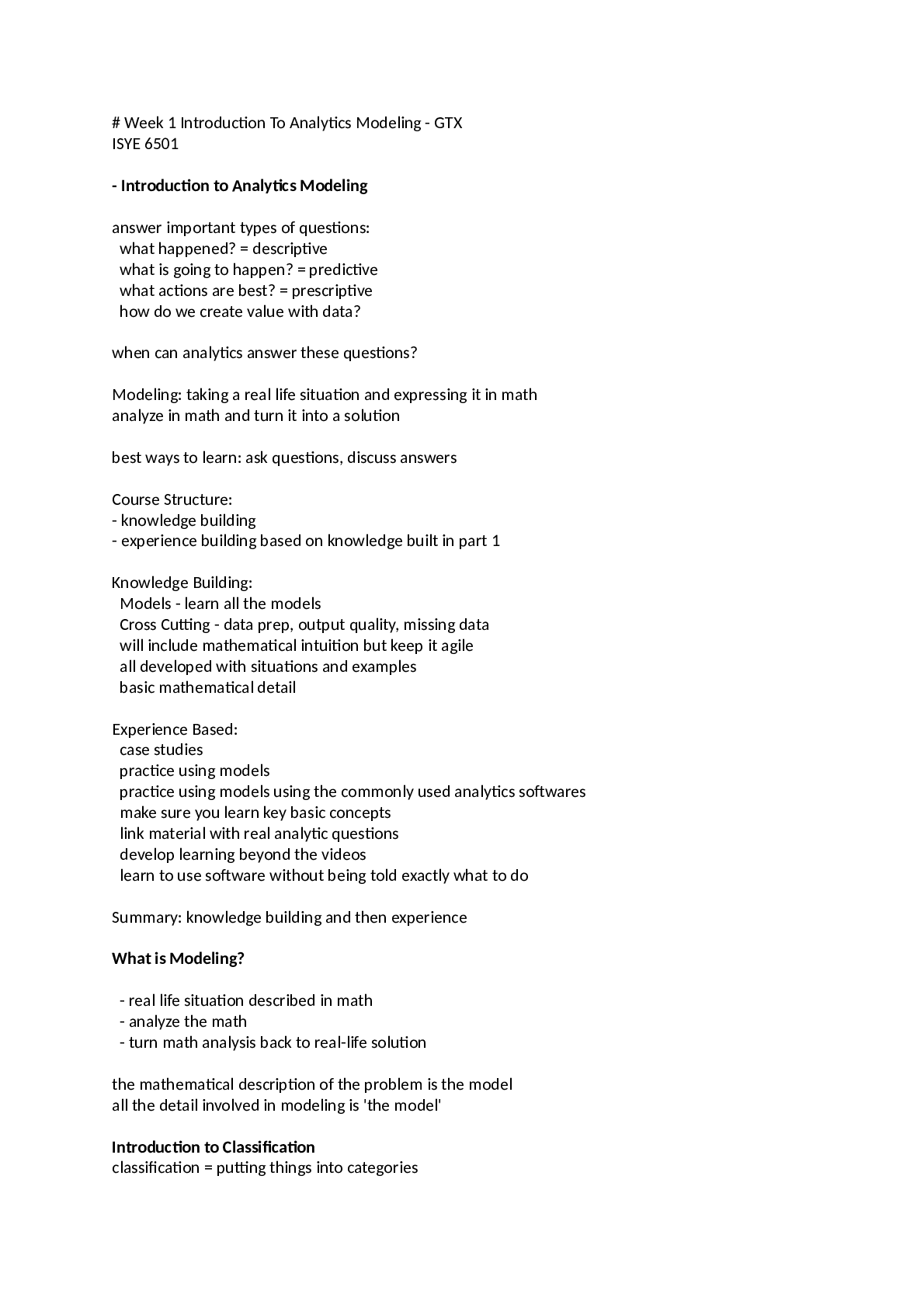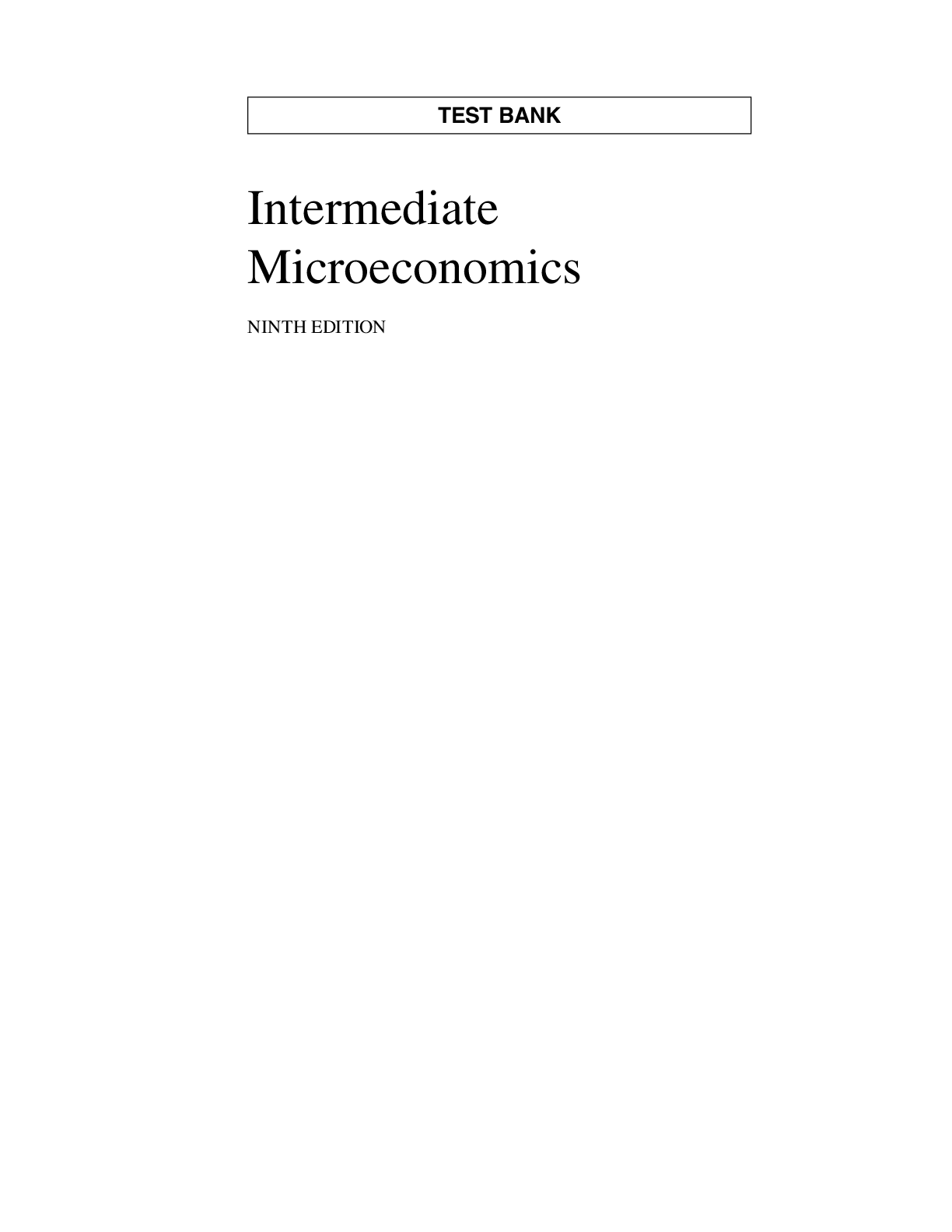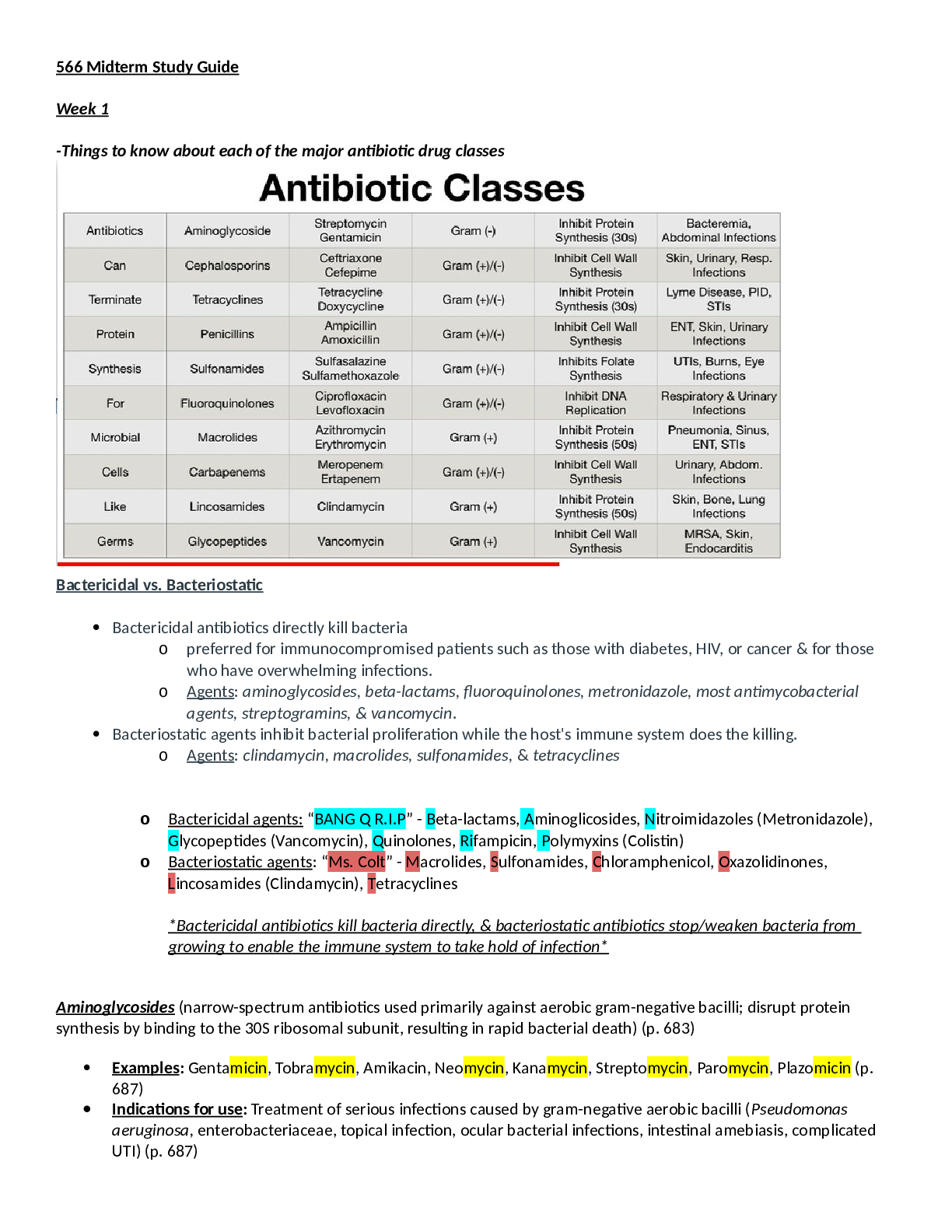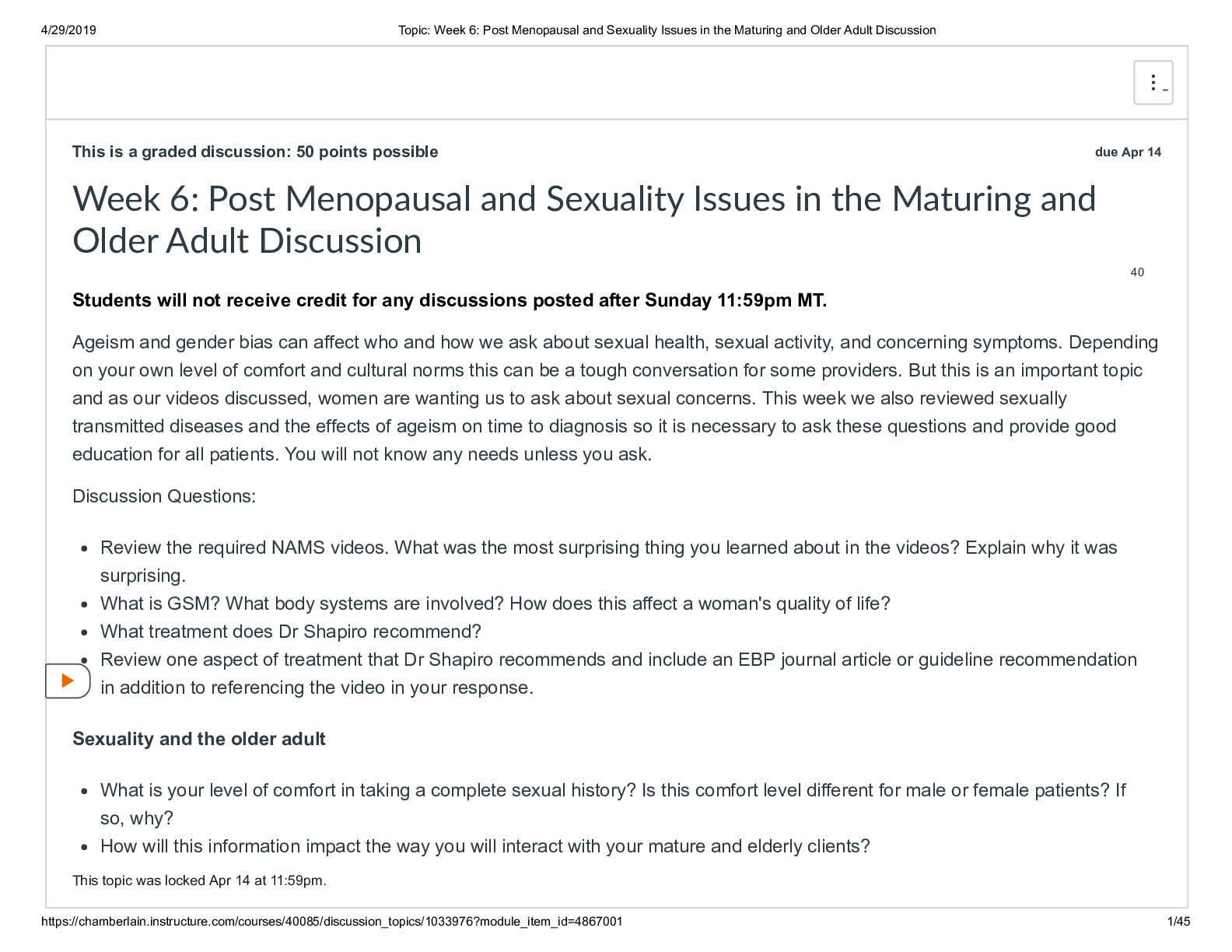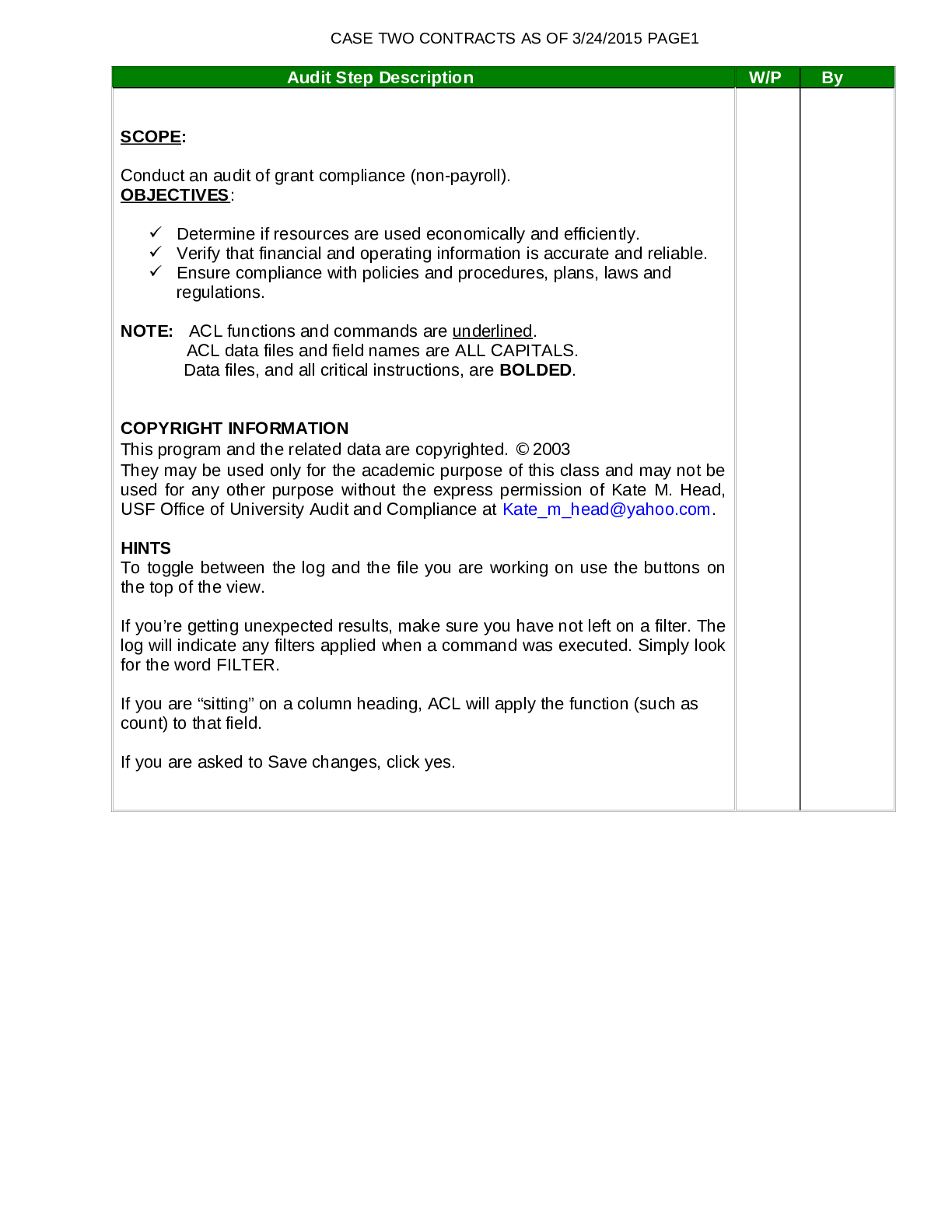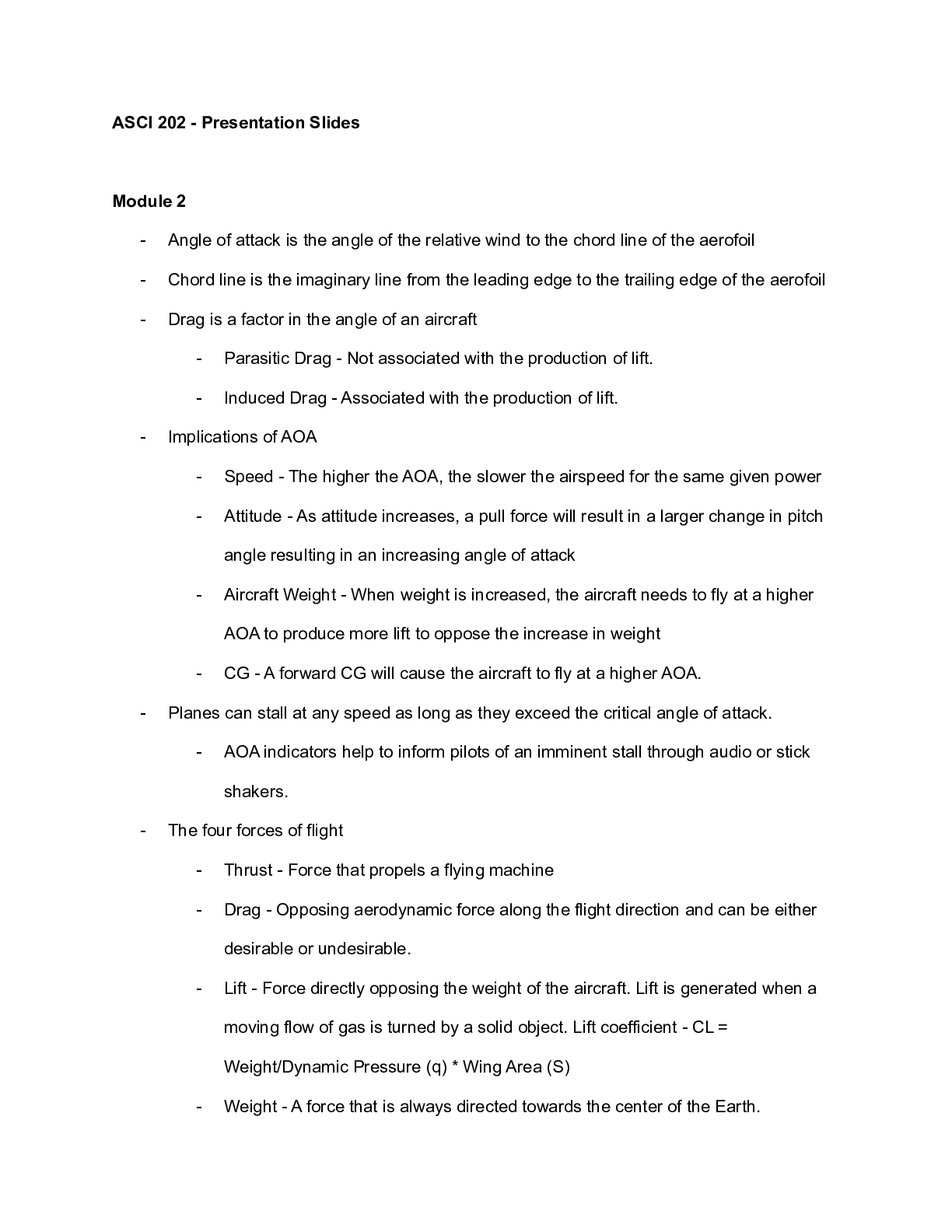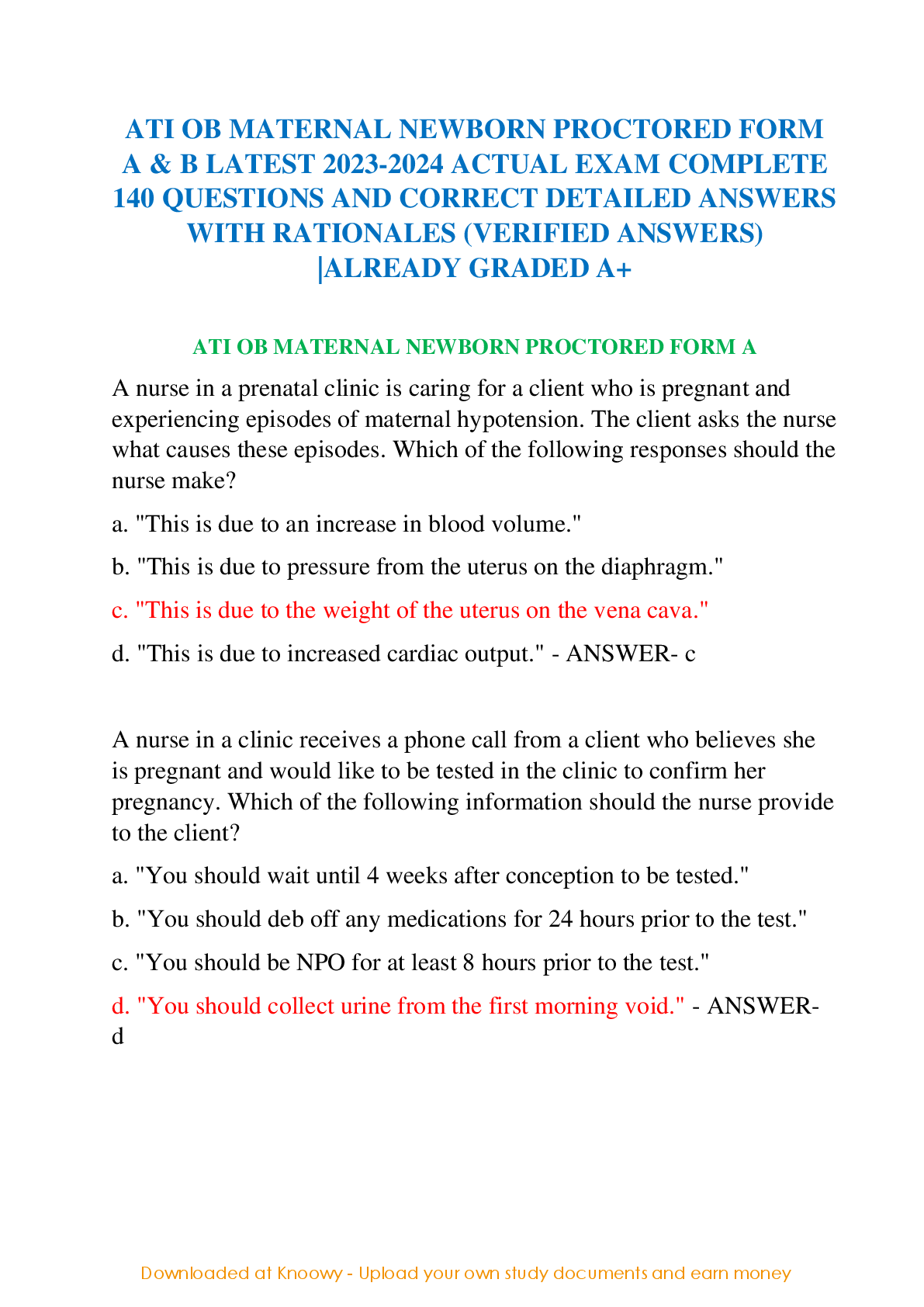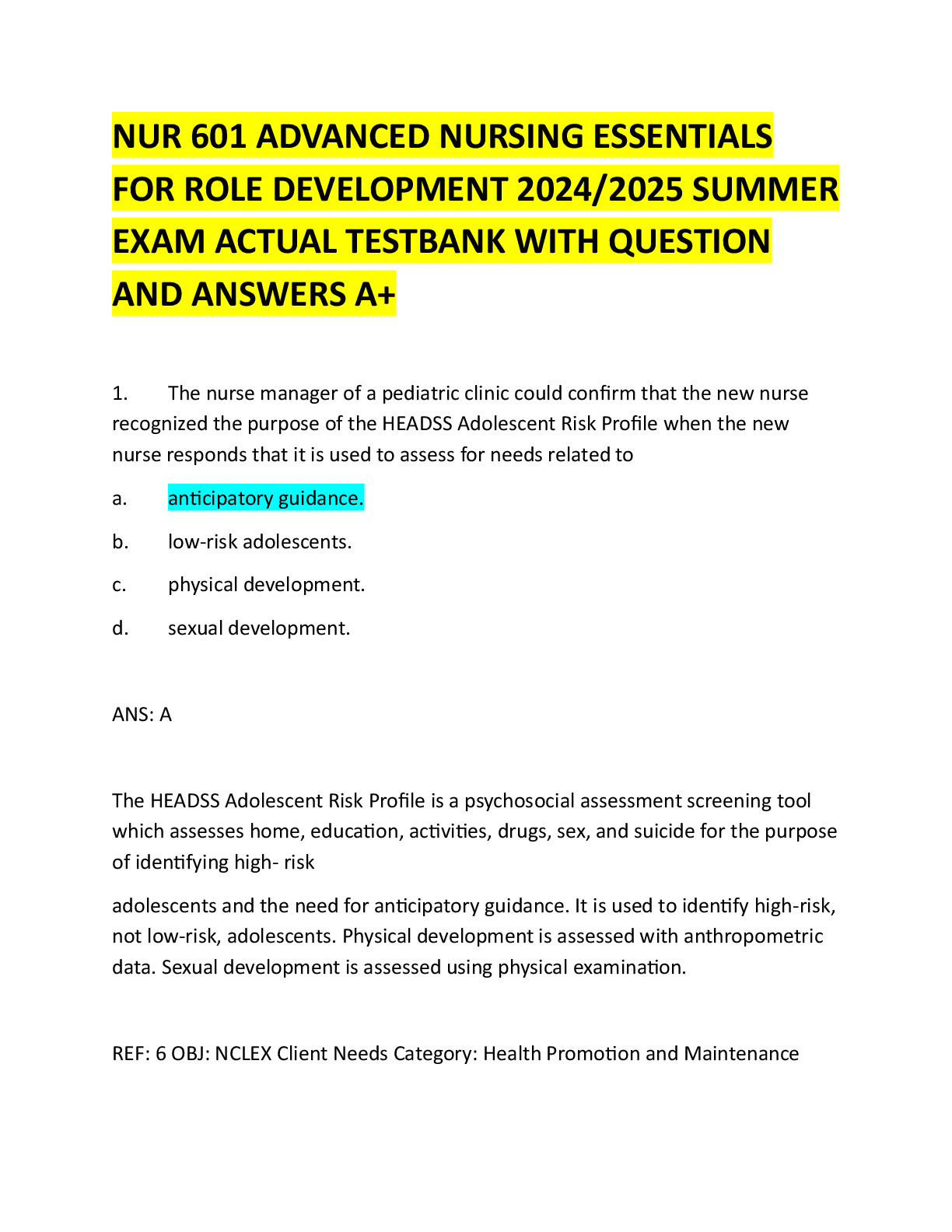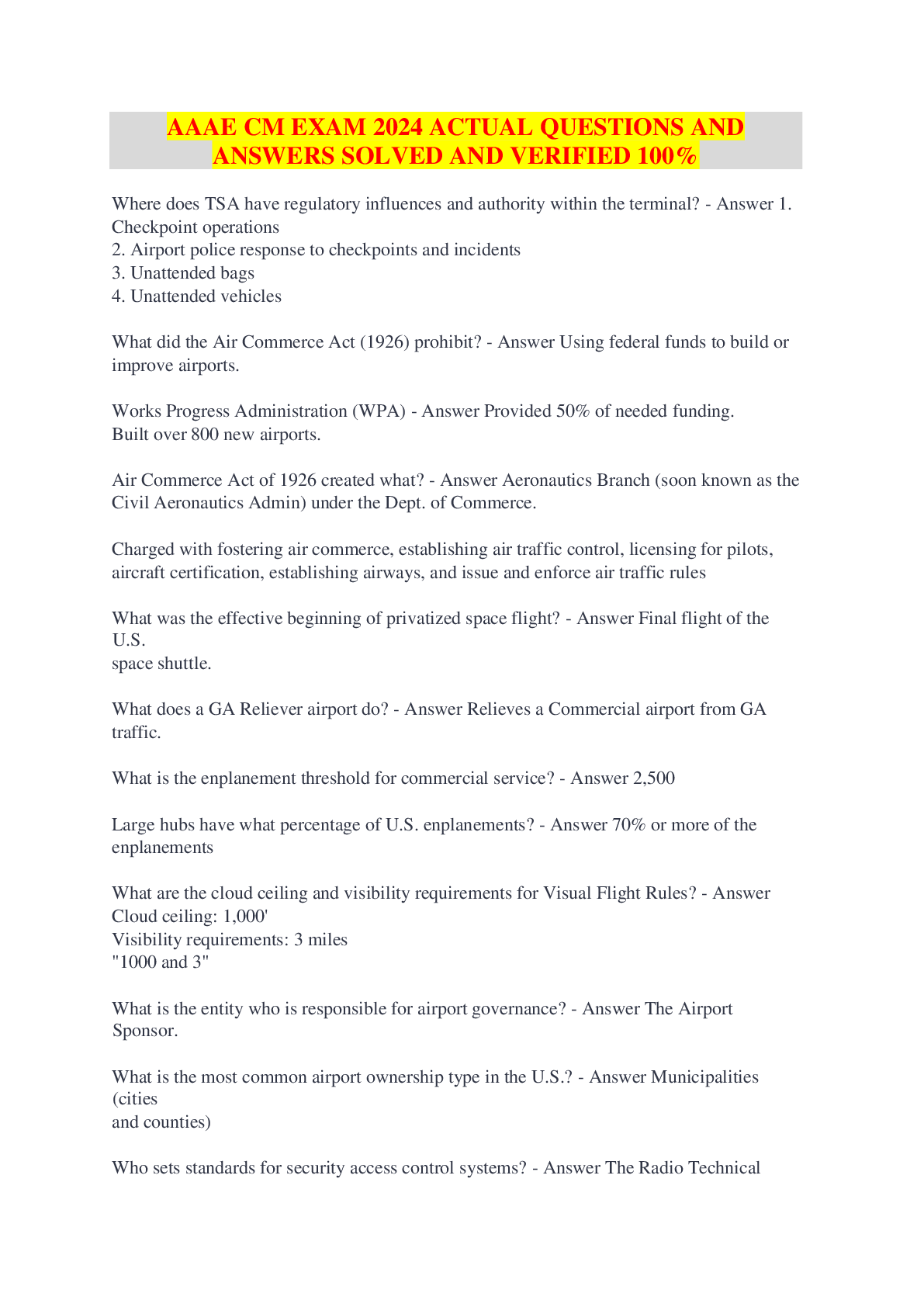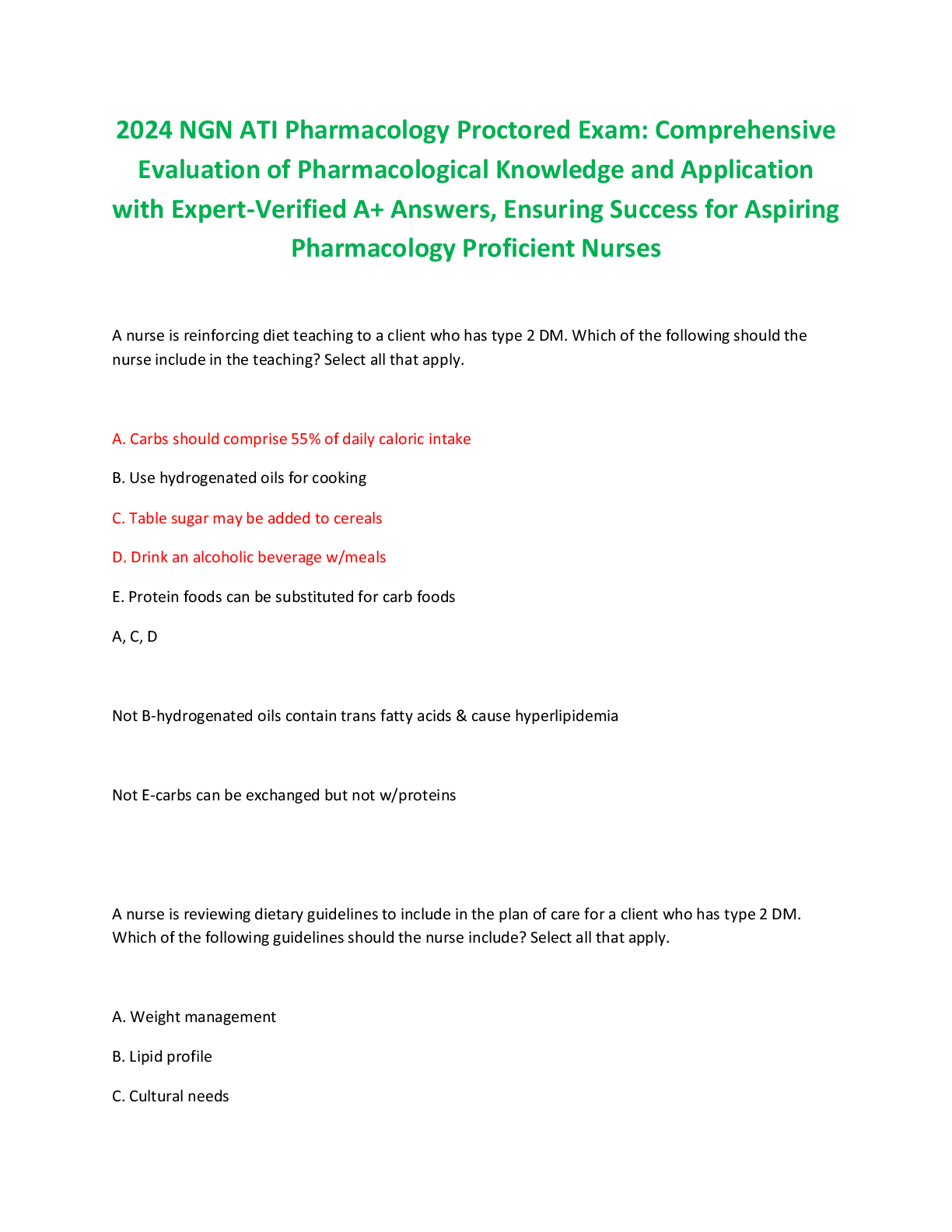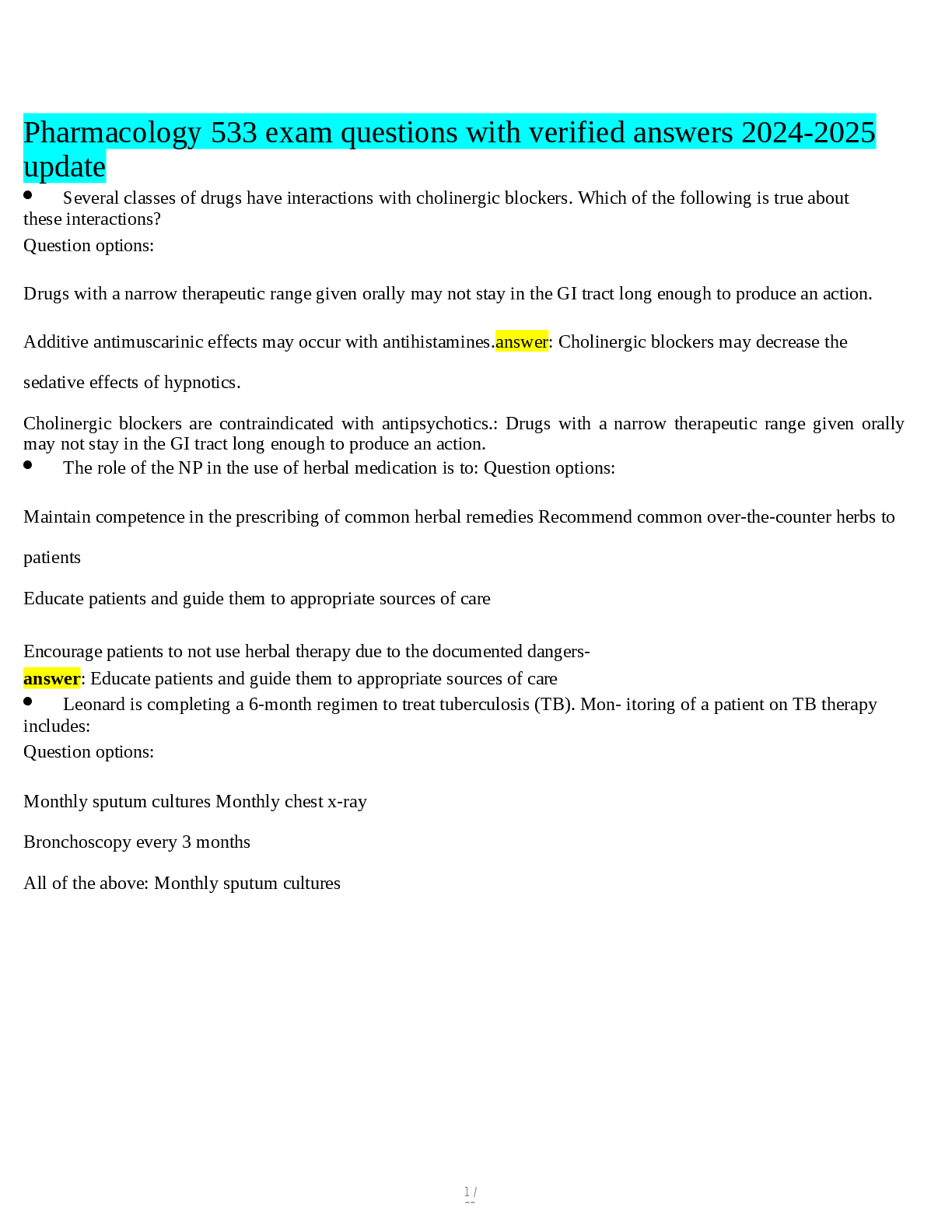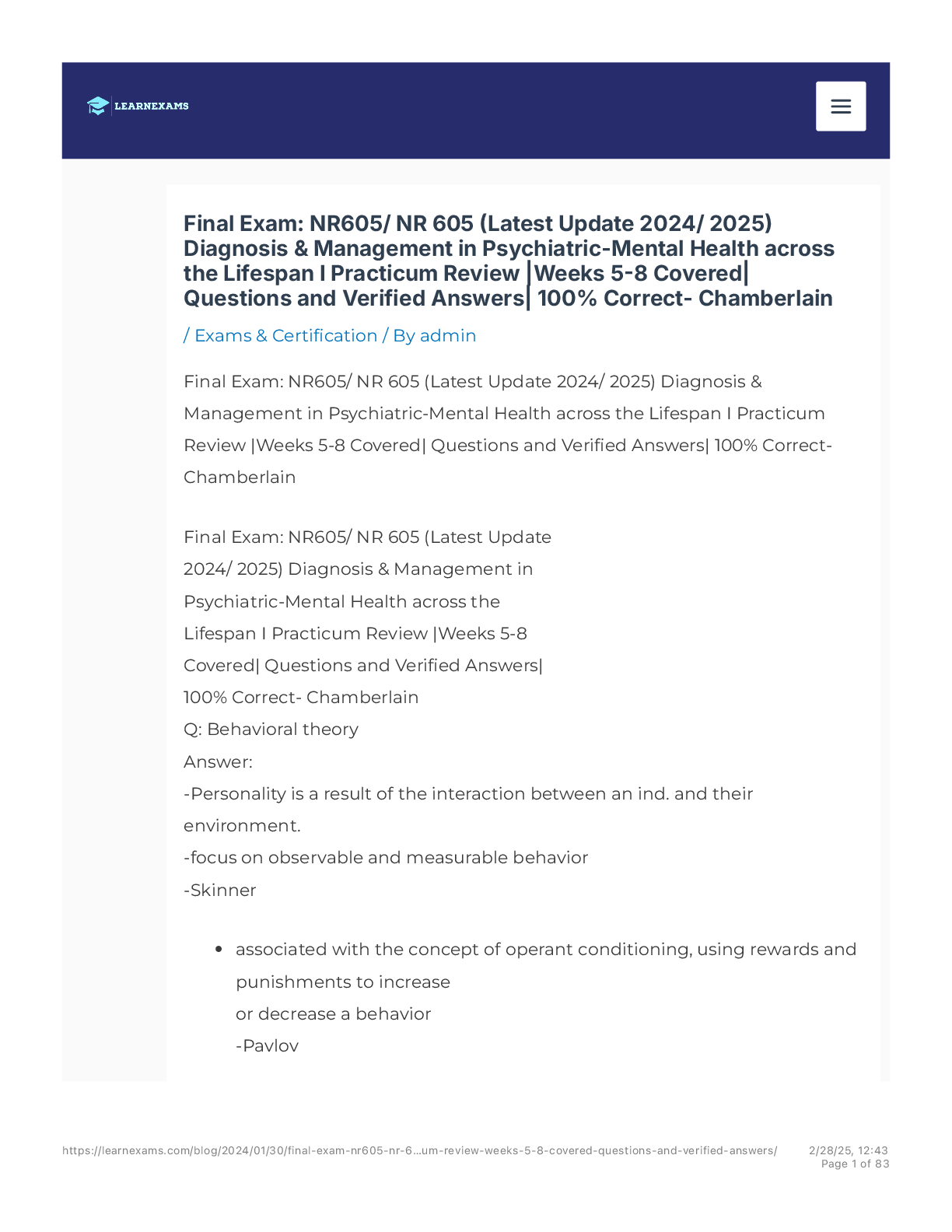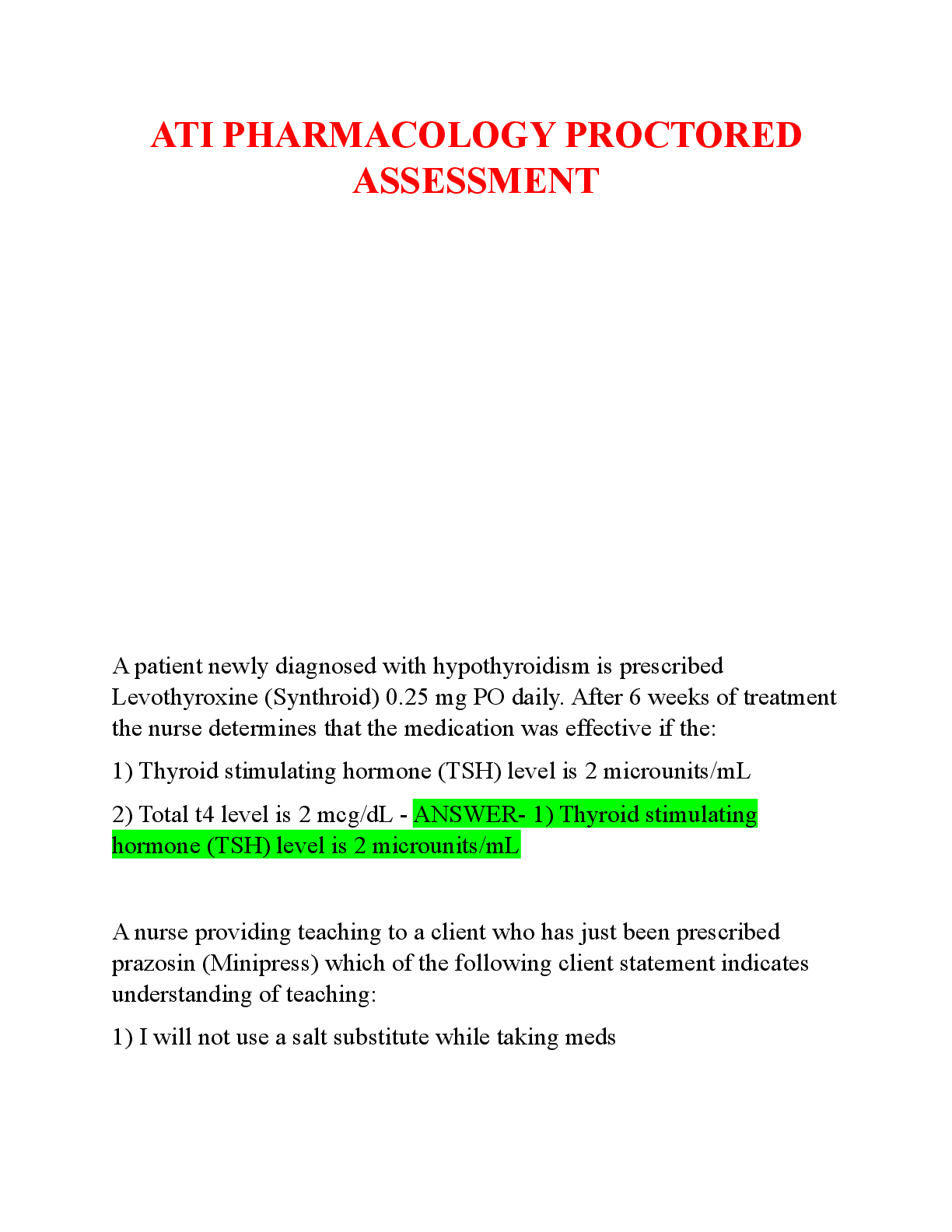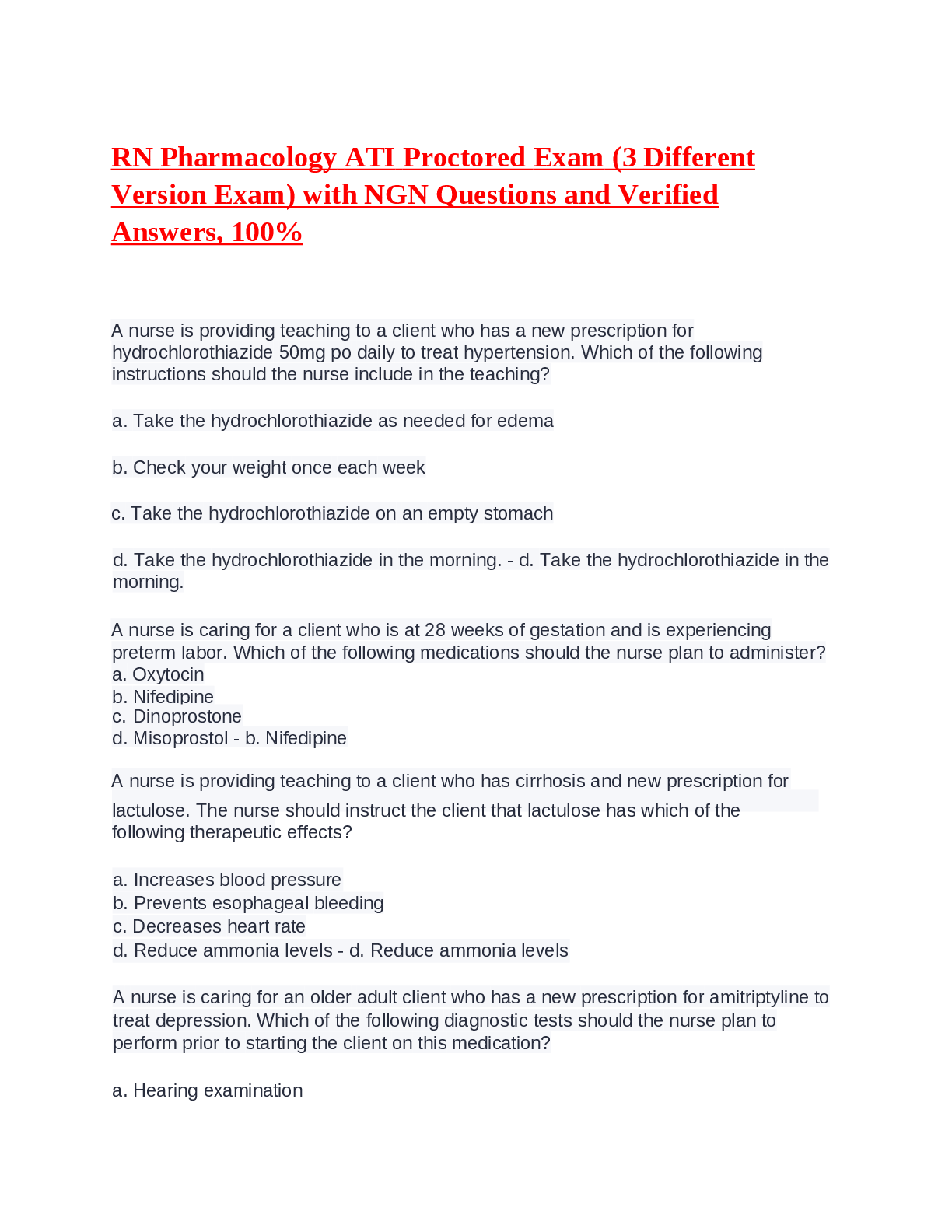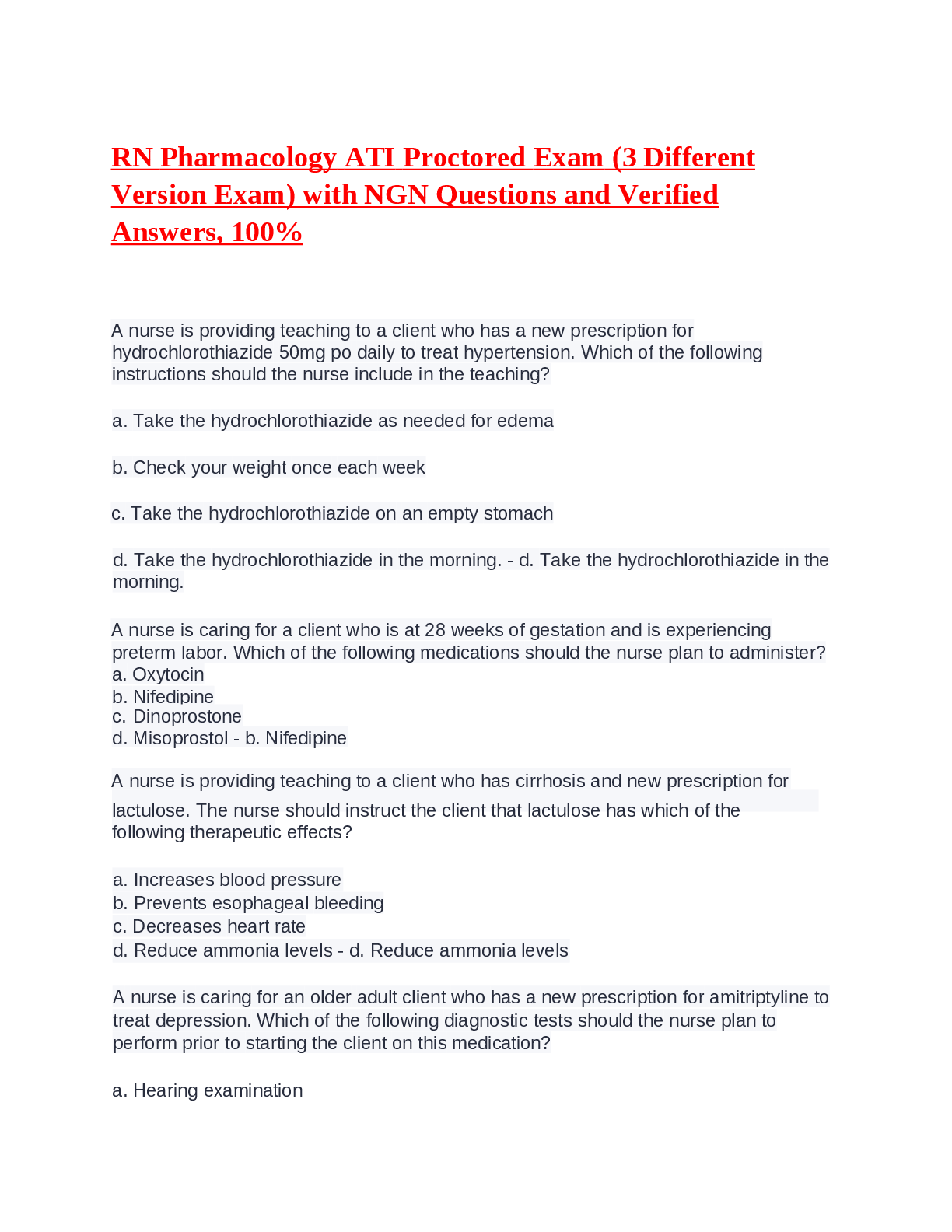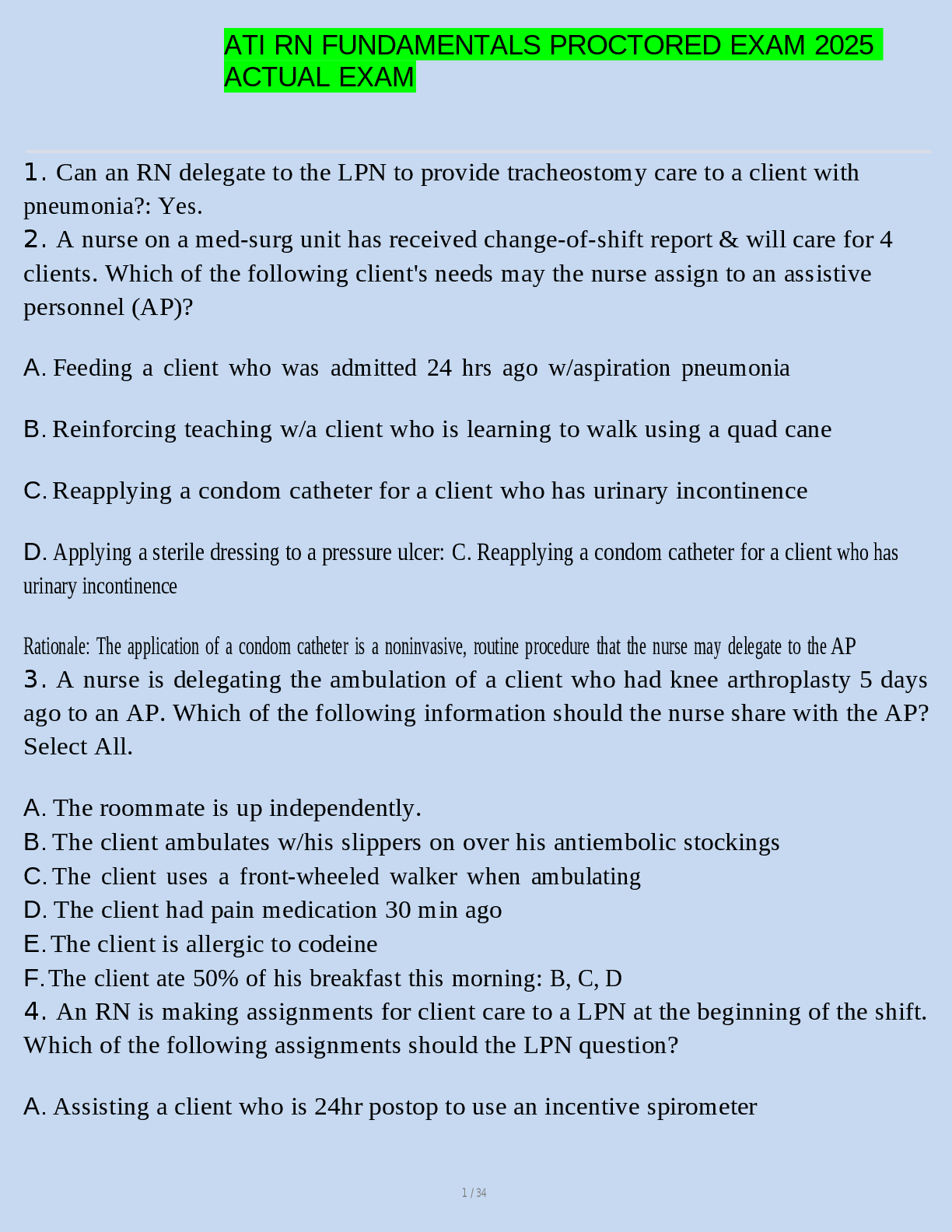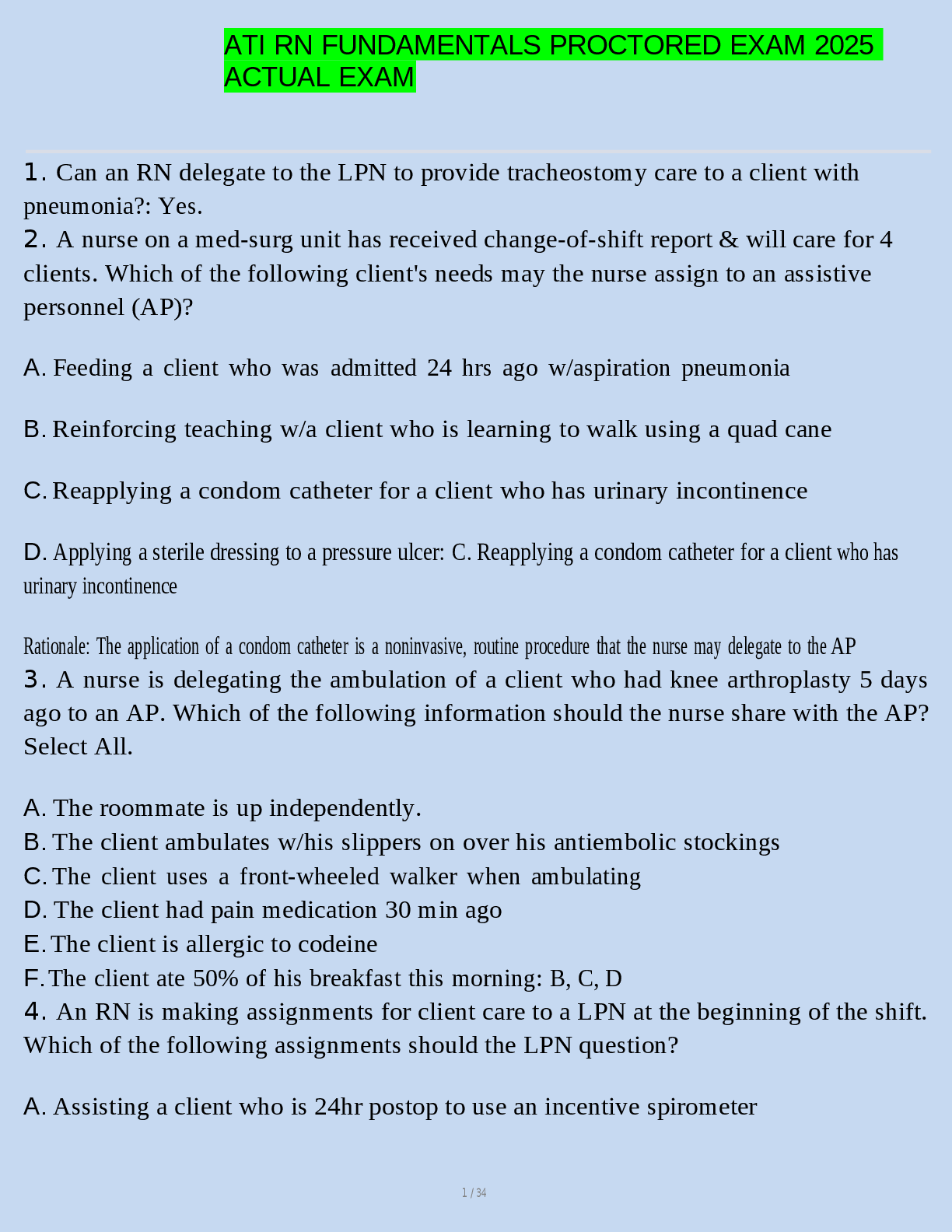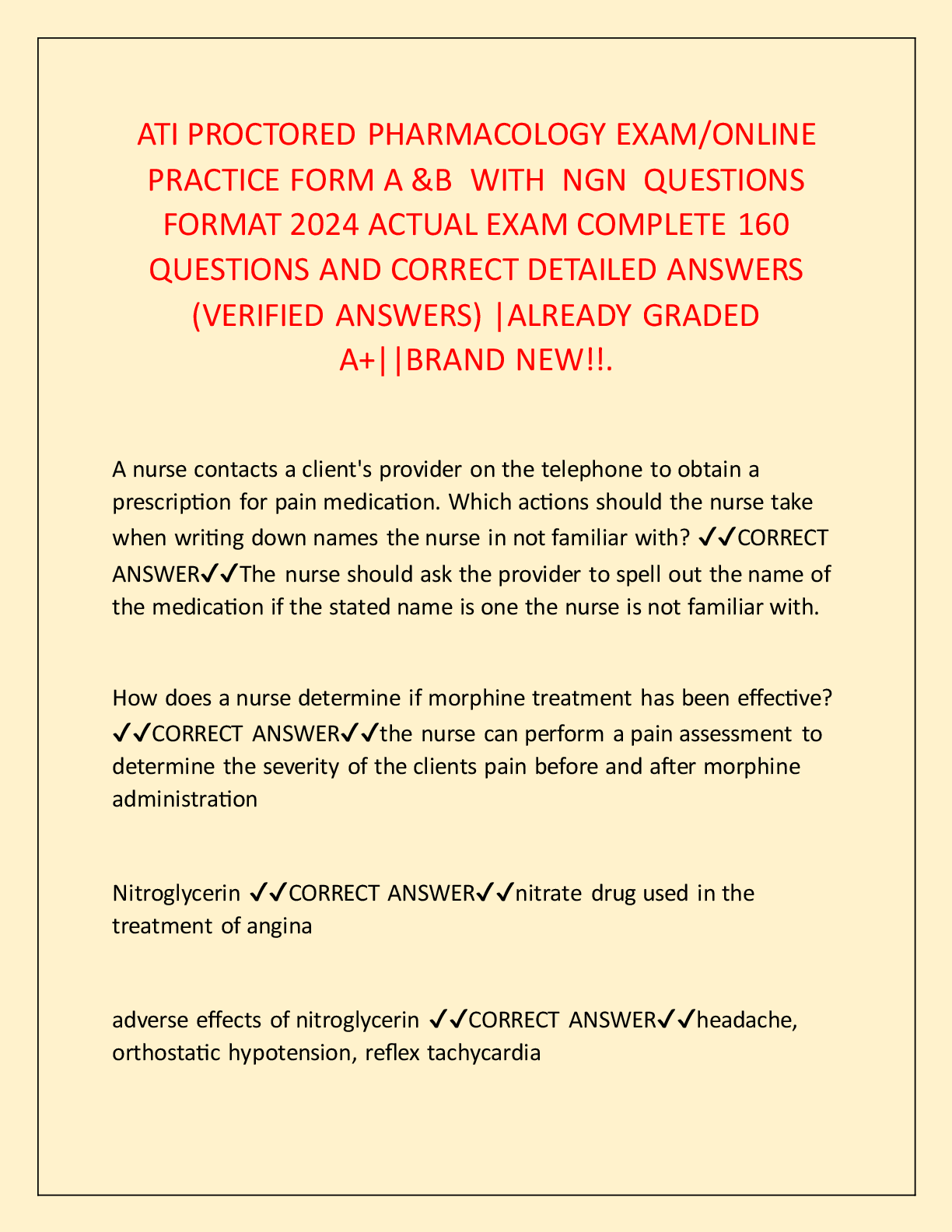1. Know the difference between subjective and objective data. (I will scream if you all
get these wrong! :))
Subjective: What a person says about themselves
o Example: “My BP was 118/90 yesterday” and pain
Object
...
1. Know the difference between subjective and objective data. (I will scream if you all
get these wrong! :))
Subjective: What a person says about themselves
o Example: “My BP was 118/90 yesterday” and pain
Objective: What you observe through measurement, inspection, palpation,
percussion, and auscultation
o Examples: Meter readings, vital signs, and measurements
2. Barriers to communication. What are they?
The use of jargon
Emotional barriers and taboo
Lack of attention, interest, distractions, or irrelevance to the receiver
Difference in viewpoint
Physical barriers to non-verbal communication
Physical or mental disabilities (Physical: Hearing problems. Mental: Down
Syndrome)
Language differences and difficulty understanding unfamiliar accents
Cultural difference.
3. Traps of interviewing-Chapter 3
Providing false assurance or reassurance
Giving unwanted advice
Using authority
Using avoidance language
Distancing
Using professional jargon
Using leading or bias questions
Talking too much
Interrupting
Using “why” questions
4.Open ended questions vs closed ended questions. Know the difference and when to use
them during the interview process.
Open ended: Questions asking for narrative information
o When to use them:
Use it to begin the interview
Introduce a new section of questions
Whenever the person introduces a new topic
Closed (direct) questions: Asking for specific information. Elicit a short, oneor two-word answer, a “yes” or “no” or a forced choice.
o Used in an emergengy to obtain information quickly
5. Components of a Health History -Chapter 4. Know this Chapter!!
Initial information
Chief complaint
Past medical history
Family history
Social history
Review of systems
Physical exam
6. General survey and what it consists of.
Initial inspection
Observe posture
Hygeine
Facial expression
Assess breathing
Behaviors
Body language
o Appearance
o Body Structure and mobility
o Behavior
7. Skills requisite of physical exam. Chapter 8. Know the correct order for assessment.
(Inspection, palpation etc). Know the different order for abdominal exam.
Order:
o Inspect
o Palpation
o Percussion
o Auscultation
Abdomen:
Inspect
Auscultation
Percussion
Palpation
8. Know the normal range of respirations. Above and below that range, what's it called?
Normal Range: 12-20(21)
Dyspnea: Shortness of breath; < 12
Tachypnea: Abnormally rapid breathing; >21
9. Lung sounds- Know difference between normal vs abnormal and where they are heard.
10. Characteristics of pulse and how to document it.
Rhythm: Normal regular, even tempo
o Rating:
Force:
3+: Full, bounding
2+: Normal
1+: Weak, thread
0: Absent
[Show More]
 (1).png)
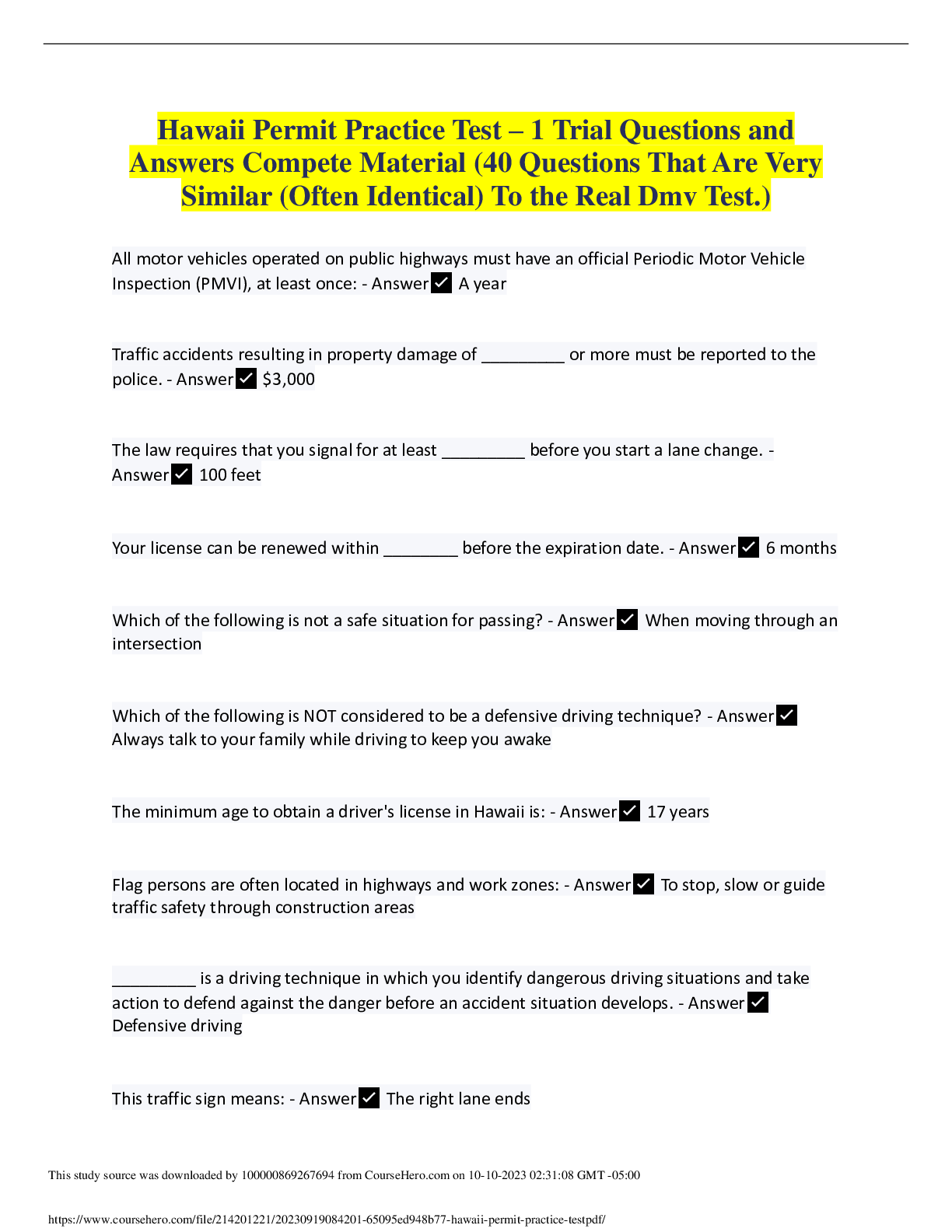
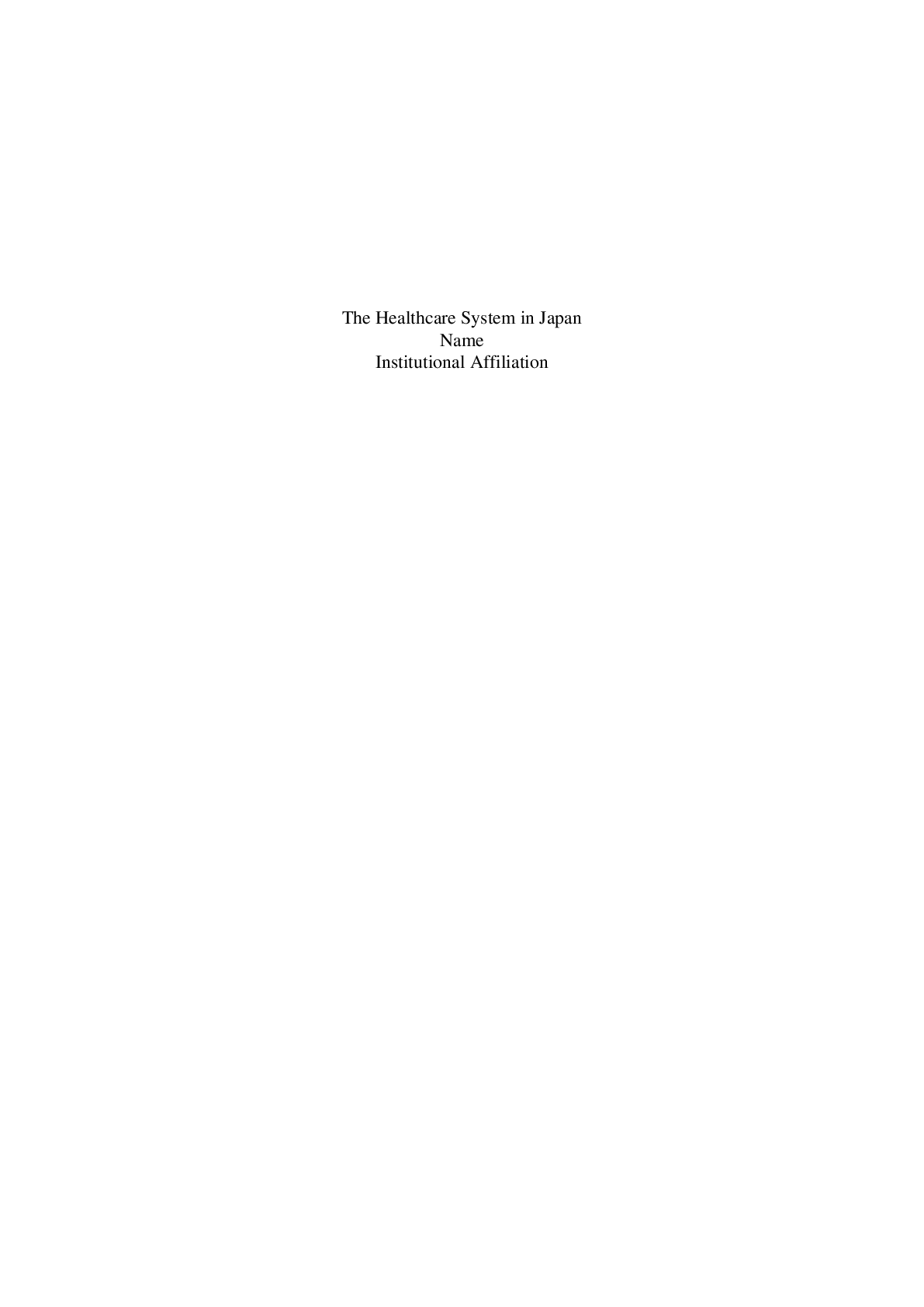
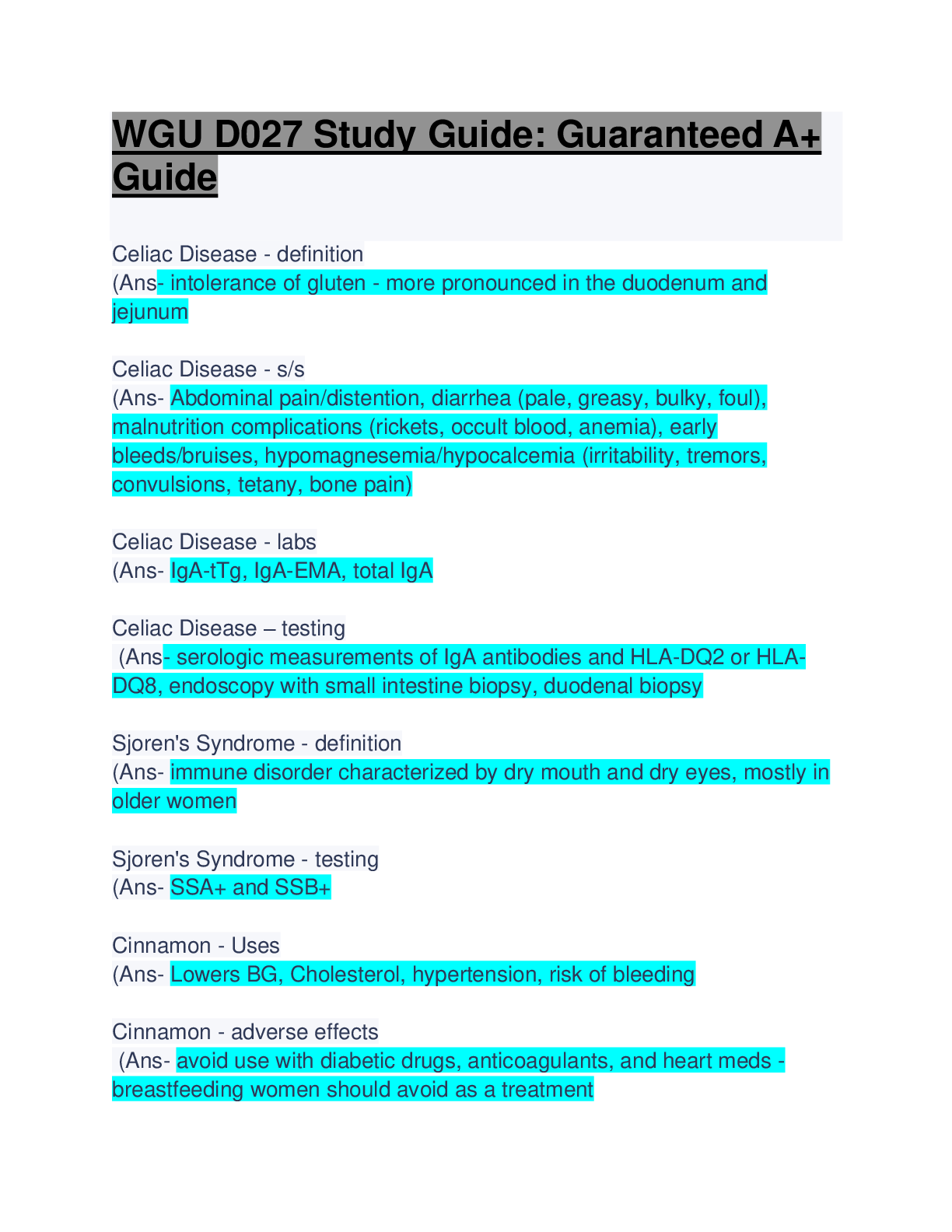


.png)
.png)



